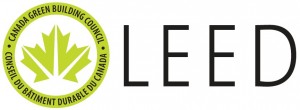Our team can also offer you solutions using ecologically responsible construction and renovation materials. We are very familiar with the latest building code standards, and we will guide you throughout your project. We are very familiar with the government incentives and subsidies that you may be eligible for. We can also recommend contractors who specialize in sustainable construction and renovation work.
Our primary fields of expertise :
 |
 |
 |
In addition, we offer recovery service for used paint containers.
Why choose ecological construction/renovation?
The main reasons for choosing eco-design include the reduction of your environmental impact, health enhancement and the decrease of your energy and water consumption. It is important to note that three main themes are a recurring part of the equation :
Environment: Reduce the consumption of energy, water and greenhouse gases and decrease waste generation
- Economics: Reduce costs and responsibilities, increase value and obtain better results
- Social: Create a more comfortable, healthier and sustainable environment
Basic principles for all projects :
- Plan your work properly in order to minimize future modifications
- Limit your consumption of resources by reusing old materials or selecting materials with recycled content
- Reduce toxic emissions inside your home and into the atmosphere by selecting less polluting products
- Install efficient systems in order to improve your home’s energy performance and reduce the consumption of drinking water
- Prioritize the use of locally sourced products in order to reduce goods transportation
Impact of construction on health and the environment
Even though construction/renovation projects can improve your quality of life, they also have a significant impact on the environment.Did you know…
- The concentration of volatile organic compounds (VOC), which are chemical products that are hazardous to health, is 2 to 5 times higher inside the home than outside, both in the city and the country? This concentration can even be 1,000 times higher following certain types of renovations, especially painting.
- The residential sector is responsible for 30% of all greenhouse gases produced in the country. A large percentage of these emissions come from the consumption of energy, primarily in the form of heating (62%), water heaters (19%), operating household appliances (13%), lighting (4%) and air conditioning (2%).
- Canadians are among the largest water consumers in the world, with an average household consumption of 329 litres per day, more than double that of the average household in France, which consumes150 litres per day.
- The construction and renovation sector generates significant quantities of waste materials created during preparation or construction sites (including demolition), losses on cut or damaged materials, temporary-use products and packaging.
Myths and misconceptions!
There are many other benefits to choosing ecological construction/renovation. For example, installing electronic thermostats reduces your energy consumption and enhances your comfort. In addition, VOC-free floor coverings, counters and paint reduce smog and significantly improve the quality of indoor air. Nevertheless, there are still a number of myths surrounding ecological construction/renovation. Here are the main ones:
Ecological construction/renovation is more complicated!
There are more and more easy-to-use ecological materials available at renovation centres. It is no more complicated to install a low-flow toilet, a VOC-free floor covering or Energy Star® windows than to install less ecological versions! On the other hand, there are some systems that are more complex, such as gray water recovery or solar heating. However, experts are available to guide you and assist you with your projects.
Ecological options are more expensive!
Energy savings, the increased value of your home and subsidies available in certain provinces reduce the actual costs of installing ecological options, especially in the case of more complex systems. For example, a LEED certified home costs approximately 8% to 10% more to build than a regular home, but it will save 25% on your energy bill, which more than offsets the higher initial cost. The costs for other products, such as paints, VOC-free floor coverings or low-flow toilets, are now competitive with traditional options. According to a recent survey, 72% of Canadians would be willing to pay more for a more ecologically sound house.
Ecological construction is a trend that will fade away!
Nothing could be further from the truth! Human beings have always used natural local resources to their advantage, including the position of the sun and the prevailing winds. These practices are even more important today, in the face of higher energy costs, the depletion of resources and climate change. An increasing number of scientific studies also show that certain materials cause health risks when used inside the home.The growing number of LEED® (Leadership in Energy and Environmental Design) certified buildings in Canada, and the ever increasing availability of ecological products of low chemical content is evidence of a healthier and more ecological future in construction. The most performing houses also have a greater resale value besides becoming very much in demand on the real estate market.
Subsidies
Benefit from various tax credits when you renovate using eco-responsible methods. For more information:
https://www.ecohome.net/guides/2301/green-building-financial-incentives/
See others services











